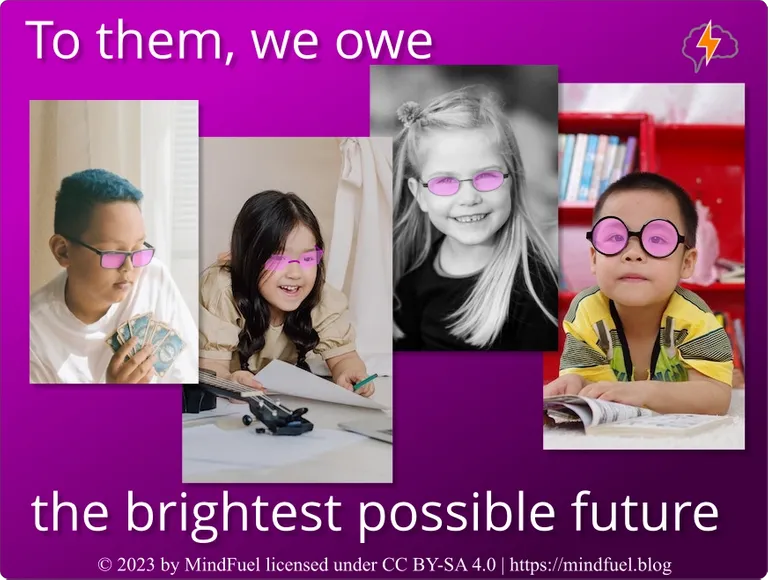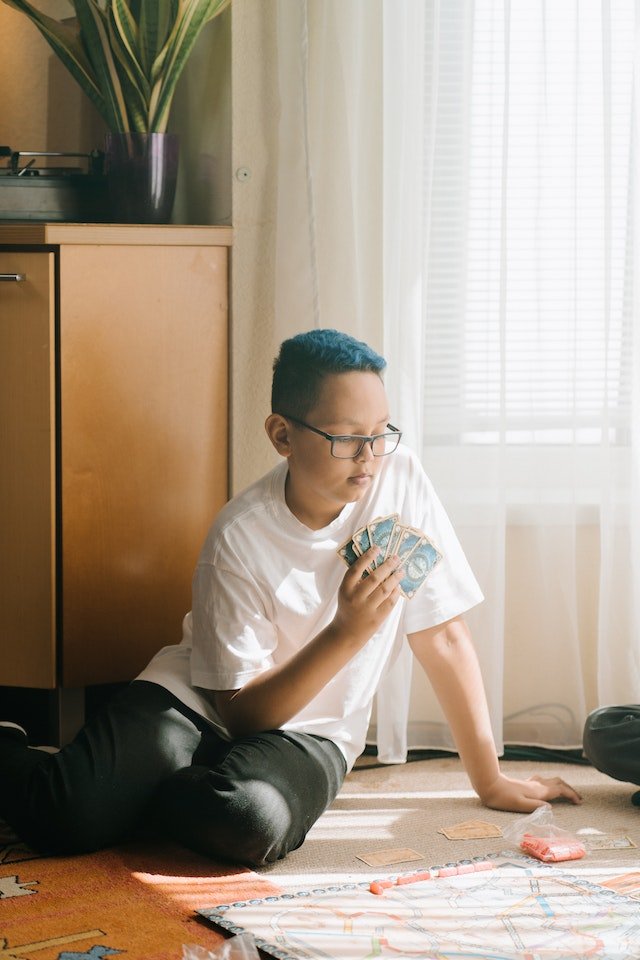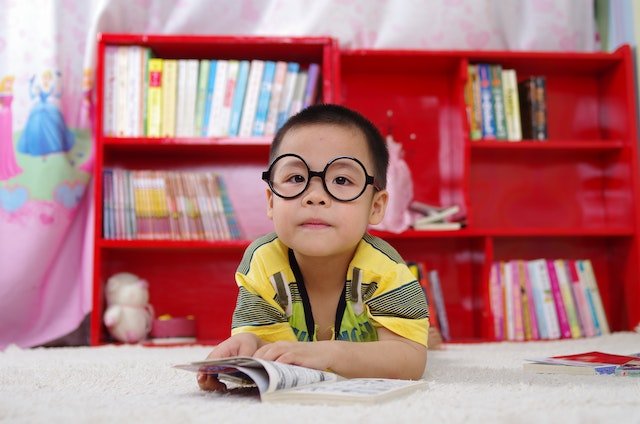TLDR
I read this article by Douglas Rushkoff, about the ultra-rich giving up on humanity. Maybe the subsequent book ("Survival of the Richest") is truth, maybe fiction, maybe a bit of both. I get the notion of "preparedness" manifests differently for each of us, but this read inspired some contemplation on Diversity, Equity and Inclusion (DEI) in its broadest sense. When comparing my optimistic views on sustainability and DEI against an apparent dipole -- aptly labeled "die" -- *Spoiler Alert* the rosy, idealist, optimistic, utopian vision of our future still came out on top as our preferred (and achievable) outcome. Happy Valentine's Day, to my favorite planet 💘
Earthquake as a DEI contemplation
I'll admit it: I am a chronic optimist, roaming the world dawning my favorite rose-colored glasses. There are, however, legit things happening every moment on this earth which test my ability to stay optimistic. Most recently, the earthquake in Turkey and Syria is a good example. What silver lining is there to such an occurrence? There isn't one. Some folks might rise up and choose to create a silver lining, and I am both thankful and respectful for those efforts. But time and time again, I come up short on what the memory of thousands of lives lost could stand for which would be better than just allowing those people to have their lives back?
The two silver lining camps
When tragedy strikes, there's first an outpouring of immediate first-responder support. These are the saints who either land, boots on the ground, trying to rescue survivors, honoring the dead, keeping the homeless alive. Or these are the folks who open their wallets and donate to support the first responders. After that, however, things simmer into a couple silver lining camps. One camp looks at the policy side - Can we predict things better? should buildings be built better? Should emergency response work better? And the other camp looks at the personal side - How do we honor their lives, do we build a memorial, is there some opportunity we can create for the people out of this tragedy?
Then the great duality
Eventually, after a fairly short amount of time, most people get back to their lives. The suffering continues for those who survived, while the vast majority of the planet (including most of the people living in the immediately impacted area) move on. Precious few remain aboard, continuing the policy or humanitarian efforts. The only time these stories bubble up again is for charity organizations, or when someone wants to run for political office and they need to connect with a demographic. Other than those soft social media sub-spikes, the event is in the past and it drifts off for a majority of the planet's population. Myself included.
Then, what is DEI, really
People who champion DEI (Diversity, Equity and Inclusion) are, like me, wearing rosy glasses. We have cleverly scoped DEI to corporate culture, to organizations and social groups, but it doesn't quite rise to its most global sense. The broad messaging within DEI is, "We don't care where you come from, everyone has a voice, everyone deserves to feel included and you will be treated equitably" and then we quickly limit it with phrases like "while employed at XYZ Corporation." Yes, XYZ is serious about DEI. The John Doe campaign is serious about DEI.
Taking DEI seriously
We have begun tackling bias across gender, race, age, ability, and economic status, but we put it into a professional context: at school, at work, at church, while in public. The context of DEI is much broader. I know, things take time, those precious few are working to advance the agenda and it is better to take some steps forward, but DEI belongs to our broadest socioeconomic mesh. Could we apply DEI to an earthquake and accelerate prevention and recovery efforts? What could DEI look like to a homeless person living in a tent in DC - wouldn't they feel more included with at least an apartment? To a family and their children who survive by scraping salt off the earth 16 hours a day - wouldn't they feel more equity if it didn't take them 5 years wages to pay off a dental filling, or if their daughter could attend school? To everyone living together on a planet that only has enough resources for 25% of the population to live the average "middle class life" of the American dream, could we not make better use of the DEI concept as an approach to achieve sustainability? I bet we could.
DEI vs Die
As I stated, I am optimist. I believe there is a way. There are also, apparently some pessimists who think they will just run off to their in-orbit Elysium, leaving the rest of humanity to perish. Honestly, I explore posts like these more for the contemplation they raise. I presume, regardless of the arguments presented, that humans are capable of everything we can imagine and even everything we might not want to imagine. Whether that post or the subsequent book is accurate or not, I don't know, but it wouldn't surprise me if some of our neighbors take the stance: "When there is a bear chasing us, I don't need to be faster than that bear, I just need to be faster than you."
And there is some pragmatic truth there. Case study: There's a bear, Usain Bolt and me. The bear states in plain English, "I'm a bear, I'm hungry and I am going to eat one of you!"
Is Usain going to say to me, "I want you to be treated equitably, and to feel included, so I will walk while you run."
It's possible, but highly unlikely. We certainly wouldn't expect that kind of treatment under the circumstances. So, at some point, the hard choices drive hard truths. But even in the headwinds we face - CO2, earthquakes, war, privacy exploitation, overpopulation, resource competition - I am still an optimist. I believe in DEI more than die. I believe there is still a way to forge a better future for our entire population.
DEI vs socialism
I am not an advocate for any one particular "ism." But when we take the concept of DEI and apply it globally, it does start to fee like socialism or communism, right? However, as we have seen with both of those and our friend capitalism, the "ism" -- the ideology -- is not typically where things break down. I theorize the lack of robust antitrust regulation is not helping free market competition in the United States. I further believe shelving R&D so it can be slow-rolled to the consumer and protect profit margins on intellectual property investments. . . that's a capitalist thing which is not so great for futurists in a rush to become our best possible selves sooner rather than when it is profitable.
No "ism" is safe from the powers of human innovation. "Isms" break down during interpretation and practice across the intended demographic. The whole "nuclear energy isn't bad, it's all in how it gets used" thing applies to "isms". The world is filled with power (from the sun, to water, to a pencil) but hey, we all know what John Wick can do with a pencil. Ergo, even though I have conjectured on a thing called Sustainablism, even that is subject to the same issues.
When it comes to advocating for a brighter future, the "isms" used to deliver it are not as important as the people who will breath life into those "isms" through their everyday actions.
DEI, H8 and children
Children are a lot smarter than we older children (sometimes referred to as "adults") like to admit. And there is a reason I chose children wearing rosy glasses for the header of this post. It's to make us all (myself included) feel guilty. OK, not wholly, but the children of today's world are connected into vast systems of information and disinformation, vast networks of social experimentation, vast amounts of marketing and propaganda - they are probably more exposed than their parents.
There is simply no easy way for parents to control the influx of this information, and teaching children how to master the global buzz of the internet is paramount lest they find themselves slaves to a future shaped while they were distracted. Children pick up on the anger and hatred, they pick up on the constant battle: War in the traditional sense, warring corporations, warring political factions, warring religions, conflict driven entertainment and heck, I even heard parents screaming "take him out!" to their 6-year-old on the soccer field. There is a difference between healthy conflict and war, between healthy debate and hate. We need more of the former and less of the latter if we want to still be here in the longer term.
Children can see the duality we are preaching, so if we can't get our act together for our "grown-up" selves, we should at least consider the lives we've brought into this world (And in some cases, the lives that our older children [sometimes also referred to as "adults"!] have brought in to this world). In general, the captains of star ship Earth owe the crew their best attempt at achieving the big ticket items like sustainability and DEI. And as we are each the captains of our own soul, we each have a part to play in making this happen.
DEI & "they aren't my children"
I am not a highly religious person, but I think most religions believe us to be children of God. Humans might argue over canonical text, about protocol, about the details that make one religion different from another, but for the most part we are all either children of or part of a cosmic energy that exists beyond our comprehension. Even an agnostic or an atheist can agree, at some level we are all energy and we are all connected. Through that pan-theological lens, all children are our children, and all people are family.
Now, that makes a great ideology. In practice, some members of our family are living the life of slaves, while other members of our family live a luxurious life. Through patterns of justification, we tell ourselves that's OK (they are not my kids, or they are strangers living in some other country, or I worked hard to achieve my success, I've earned my CO2 profile!), but I conjecture we cannot talk DEI and accept this duality at the same time. I am guilty here, so there's no judgment. We have to accept, maybe not today, but over the course of our evolving this sustainability journey, that we need to give everyone that "shot." They may not take it, or they may not all achieve the same levels of success (however success gets defined), but there are some basic standards that should apply to every member of our species, there are some basic liberties that should apply, and then the rest unfolds from there within some kind of framework that keeps our resources and consumption in check.
Getting ahead of myself, but bottom line is global leaders have to accept the people of the globe as their charge. The systems we put in place have to both enable us to protect star ship Earth, but give each other a fair shot at life on star ship Earth (or other star ships, when that becomes a thing).
Dystopia outsells Utopia
This blurb totally disturbs the DEI groove in this post, but there is such a push in our lives toward a bleak, dystopian, self-fulfilling prophecy. I had to include a little riffing on this topic.
Dystopian futures abound because they sell. The zombie battles, the hero that must save the world from demon xyz using the sword of abc, empire building, most sci-fi movies I have seen (except Star Trek). How many games or movies make it to market with humanity existing in a peaceful, abundant, utopian future? Imagine that trailer:
The top movie in Utopia: "Summer Sunset and Cool Lemonade."
(deep movie trailer voice) "In a future where humans have figured out how to coexist peacefully, one person, born in a happy, loving household, pursues the life we are already experiencing."
The top game in Utopia: "Sittin' on the Dock of the Bay."
Users login and the game proudly declares, "Nothing to do here but watch - everything is in perfect balance!"
There just isn't much of a market for happiness. It's boring. Weird, right? Maybe dystopia wins because it rests on the post-nuclear, comet, zombie apocalypse we are all dreaming into existence; however, the hope of DEI will burn like a candle in that darkness. That's just how movies and games work, yo. They make us appreciate boring happiness by having us fight and suffer to achieve it, and even then, only for a moment before the next death-ray crime syndicate rises from its ashes to try and subjugate the world again!
I am ready to "flip that dog" as they say. Let's create a world where we are so at peace, our doctors say, "You need to play more video games, your cortisol levels are a bit too low!"
On "Survival of the Richest"
And that brings us to the section which started this whole post. Let's start with: everyone should be prepared for a wide range of outcomes in life. Preparedness is nothing new. However, preparedness is not used to this level of DEI. The idea that everyone on earth (diversity), should have a fair shot (equity), free from bias (inclusion) -- this is a significant contrast from how humans are used to operating (strength and whoever most skillfully wields a blunt trauma device, through to weapons of mass destruction). DEI is a departure from the "natural selection" and "survival of the fittest" mantras that have guided our species for as long as we've existed.
People and institutions have been beating the DEI and sustainability drums for a long time, but only recently has even a portion of our global family reached a level of stability where it could become a thing. As any good empire building game will show, there is this stack of dependencies required for civilizations to advance, and if any of those dependencies were to crumble, everything built on top of them will also fall. DEI and sustainability are resting, precariously I might add, on a stack of such dependencies. The day we run out of electricity, food, oxygen, sunlight, is a different day for anyone who goes through it. When thousands of buildings fell over in Turkey, there were a million people who could care less about DEI or sustainability - they just needed to find their loved ones and make it though that day alive.
If that day comes for any one of use reading this post, we will be out there trying to survive. Rich or poor, that's what we'll be doing. Some will opt to be more helpful to those around them , some will opt to be more insular. Survival instincts can be brutal. But, the best answer is to not let things plummet into this flavor of chaos. The most obvious path to stability, in the context of our current population, relative to the resources available, is through achieving sustainability & DEI. Achieving that state whereby the planet can produce at the level our species consumes without degrading things like climate, seasons, ice caps, jet streams, coral reefs, and the list goes on -- that's stable. DEI is also a part of the stability agenda. People who feel they belong and are being treated fairly don't start insurrections, right? Alright, then.
There's also a camp of people who believe climate change is not caused by humans. I contend, we still need to advance to a level where we own whats happening, whether we are the cause or not. So, even though I think there's pretty much enough data indicating cow farts and cars are significant factors, there's not much reason to debate those points. We need top soil, we need seasons, we need hurricanes to not be doing trillions of dollars worth of damage every year, whether all this is caused by us or not. Ergo, we need to start getting our minds around terraforming and this planet seems like as good a starting point as any given the situation we've created for ourselves.
In closing, I guess, if you are super rich and thinking of running off to a bunker, that doesn't bother me, really. We are all scared of what might happen if we fail the sustainability mission. But the question in the canvas for me is, what more can we be doing to avoid the bunker scenario? And the answer is. . . plenty. There is an abundance of opportunity here. This post is just a teaser reel compared to what we could be doing. Lets make sustainability and DEI happen instead. Then we can tackle interplanetary or orbital colonization next.
Image Credits

This is a derivative work based on several talented artists as credited in this section. The resultant work:
Rosy Glasses by MindFuel Blog is licensed under CC BY-SA 4.0




View or trade
BEER.BEERHey @t3kme, here is a little bit of from @isnochys for you. Enjoy it!BEER at dCity game to buy cards to rule the world.Did you know that <a href='https://dcity.io/cityyou can use
Thank you for your witness vote!
Have a !BEER on me!
To Opt-Out of my witness beer program just comment STOP below